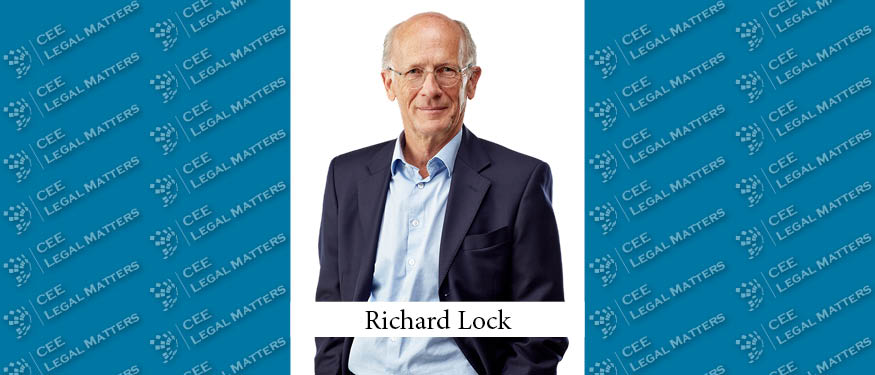Amendments and supplements to the Customs Law, enacted in December 2022, amended the misdemeanour provisions for violations of this law. The amendments introduce greater certainty regarding the misdemeanour liability of importers and customs representatives for submitting customs declarations and accompanying documents with the goal of legitimate conducting of customs procedures. In this article we present our interpretation of the respective amendments.
Update of Regulations Relating to Foreign Nationals
Two laws concerning the work and residence of foreign nationals in Serbia have been updated this July. The Serbian Parliament has adopted the amendments to the Law on Foreign Nationals (“LFN”) and to the Foreign Nationals Employment Act (“FNEA”). Among the main reasons for these amendments are harmonization with EU regulations and standards, as well as the current trend of increased presence of foreign workforce in Serbia, the need for which is expected to continue to be on the rise.
AI in Agriculture: Navigating Liability and Regulation
The world’s population is on the rise, increasing the demand for food. The United Nations estimates that the world population will reach 9 billion people in approximately 15 years; by 2050, it is expected to reach 10 billion people. This means there will be an additional two billion people to feed, necessitating farming and food production to become more efficient.
Zivkovic Samardzic Advises Samsic Holding on Buying Out Samsic STM Minority Shareholders
Zivkovic Samardzic has advised Slovenia's Samsic Holding on its acquisition of the remaining 45% stake in Belgrade-based facility management, construction, and installation services provider Samsic STM from the two founding shareholders. Sole practitioner Jelena Rasovic advised the minority shareholders.
US Supreme Court Justices Unite Against Parodying Trademarks
At the beginning of June 2023, the Supreme Court of the United States ruled in favor of the famous Jack Daniel’s distillery in a trademark infringement lawsuit after a squeaky toy for dogs appeared on the market, which resembles a bottle of the famous whiskey Jack Daniel’s Old No. 7 Black Label Tennessee Whiskey in the context of shape of the bottle and other elements (trade dress).
Karanovic & Partners Advises OTP Group on Acquisition of Ilirika Fund Management Company
Karanovic & Partners has advised the OTP Group on its acquisition of the Ilirika Fund Management Company in Serbia.
From Collective Rights to Individual Justice: Class Action in the USA and Its Prospects in Serbia
On July 4, the United States celebrated Independence Day, which reminded us of the Declaration of Independence from 1776 that marked the establishment of the United States. This prompted us to reflect on the numerous distinctive legal achievements of the United States, inspiring us to explore the phenomenon of class action. Originating from across the Atlantic, this legal institution has found its place in continental European jurisdictions, sparking discussions within the professional community about its potential incorporation into Serbia’s legal framework.
A Lifeline for Data Transfers: EU-US Data Privacy Framework Is Back On
In the long-awaited aftermath of the havoc caused by the CJEU’s decision (adopted in 2020 in the famous Schrems II case) to invalidate the previously existing EU-US Privacy Shield Framework, the European Commission adopted the adequacy decision promoting the new EU-US Data Privacy Framework (the “Framework”) on 10 July 2023.
Commercial Offences – Proceeding, Sanctions and Statute of Limitations
Chapter 1 - A commercial offence – a brief review of an unjustifiably neglected step between a misdemeanour and a criminal offence.
Schoenherr and Karanovic & Partners Advise on OTP Group's Project Financing for Pannonia Bio
Moravcevic, Vojnovic, and Partners in cooperation with Schoenherr has advised OTP Group members OTP Bank Plc Hungary and OTP Bank Serbia on project financing for Pannonia Bio. Karanovic and Partners advised Pannonia Bio.
CK Telecoms Judgment: Revisiting Errors and Pursuing Clarity
As we previously announced, the Court of Justice of the European Union (“CJEU”) issued a ruling in the CK Telecoms case last week, annulling the CK Telecoms judgment and referring the case back to the General Court (“Court”). This appeal was in response to the Court’s decision on May 28, 2020, invalidating the European Commission’s (“EC“) ban on the acquisition of Telefonica Europe Plc by Hutchison 3G UK Investments Ltd. In this article, we delve deeper into the background of this important case and the reasoning behind the CJEU ruling.
New Legal Framework for Personal Data Transfer Between the EU and the US – déjà vu?
On July 10, 2023, the European Commission adopted a new mechanism for personal data transfer between the EU and the US – the Decision no. C (2023) 4745 (“the Decision”), which stipulates that the US provide adequate and appropriate level of protection, i.e., that corresponds to the one existing in the EU in terms of personal data transferred from the EU to the US companies, without the obligation to undertake any further protective measures. The Decision entered into force and started to apply on the day of its adoption.
Schoenherr and DLA Piper Advise on GfK's Sale of European Consumer Panel Business to YouGov
Schoenherr, working alongside Jones Day, has advised GfK SE on the EUR 315 million sale of its European Consumer Panel business to YouGov. DLA Piper advised YouGov.
JPM & Partners Successful for Colas Rail in Arbitration
JPM & Partners has successfully represented the interests of Colas Rail in an arbitration proceeding against a subcontractor and its bank.
BAT Appoints Zora Ilic as Head of Legal and External Affairs for Adria Cluster.
British American Tobacco has appointed Zora Ilic as its Head of Legal and External Affairs for Adria Cluster.
Advancing Sustainability and Circular Economy: New European Regulation on Batteries and Waste Batteries
On July 10, 2023, the Council of the European Union (“Council”) officially adopted the Regulation of the European Parliament and of the Council concerning batteries and waste batteries (“Regulation”). This Regulation covers the entire battery life cycle, from production to reuse and recycling, aiming explicitly at safety, sustainability, and enhancing competitiveness.
EU’s Foreign Subsidies Regulation Starts to Apply
The Foreign Subsidies Regulation (FSR), one of the EU’s latest state aid instruments, entered into force on January 12, 2023. Now, after six months, it starts to apply. This regulation establishes rules to govern foreign subsidies that could distort the EU’s internal market. It empowers the European Commission (“Commission”) to investigate financial contributions provided by non-EU countries to companies operating in the EU. If these contributions are found to be distortive subsidies, the Commission can enforce corrective measures to remedy these effects.
The Court of Justice of the EU: Competition Authorities May Examine Infringement of Personal Data in the Context of Monopoly Position of the Controller
In one of our previous texts (available here) we wrote about the connection between the protection of competition and protection of personal data, namely whether competition authorities may consider infringements of personal data in their investigations.










































